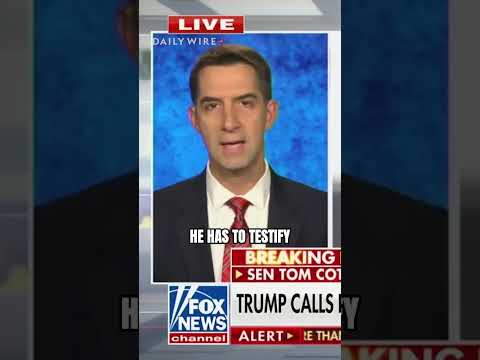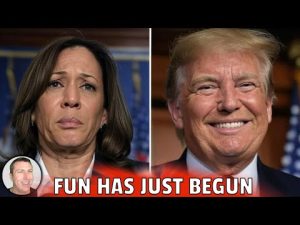The recent pardon granted to Hunter Biden by President Joe Biden raises eyebrows and sparks a lively debate about the implications behind this decision. While many might see it as a protective measure for the President’s son, others, including Senator Tom Cotton, predict it could backfire spectacularly. It is essential to consider what this means not only for Hunter Biden but also for the Biden administration and, ultimately, for accountability in politics.
At first glance, a blanket pardon may seem like a safety net for Hunter. However, this decision inadvertently strips him of his constitutional rights, particularly his ability to invoke the Fifth Amendment. This amendment allows individuals to refuse to answer questions that could incriminate them. Without this protection, Hunter Biden now faces a public spotlight and potential legal consequences that could draw out past dealings, which have already raised flags. When a person cannot plead the Fifth, it raises questions about transparency and accountability—something both sides of the aisle should be concerned about.
One example that highlights this potential exposure involves Hunter’s trip to China on Air Force 2. Many Americans are rightfully troubled by the notion that government resources were used for personal gain or questionable business dealings. If forced to testify, Hunter could be asked about his meetings with Chinese officials and the enormous financial benefits that followed. These are no small potatoes; they involve significant amounts of money and raise ethical questions that need thorough investigation.
Additionally, Hunter’s lucrative position on the board of a Ukrainian energy company, for which he had little to no qualifications, is another situation that screams for scrutiny. It seems fishy to many that he stood to benefit immensely while his father was in a position of power as Vice President. Now, without the refuge of the Fifth, Hunter may have to explain the intricacies of these questionable dealings, revealing more than the Biden family might like.
This situation illustrates a broader principle about accountability within one’s own party. Politicians often tell us that the rule of law applies to everyone equally. By granting a blanket pardon, the Biden administration risks sending a message that certain individuals are above the law, thereby undermining public trust. In a country where trust in leaders is waning, this move might not be the wisest course.
While the intent may have been to shield Hunter Biden, the reality is that this pardon could expose him to more significant scrutiny. It leads to an ironic twist: rather than providing safety, it may ultimately unravel a series of questionable decisions. As this story unfolds, Americans will be watching closely, eager to see if any truths will emerge or if this will simply become another chapter in the ongoing saga of political intrigue. In the world of politics, it often seems the simplest answers can lead to the most complicated consequences—a lesson President Biden might be learning the hard way.



